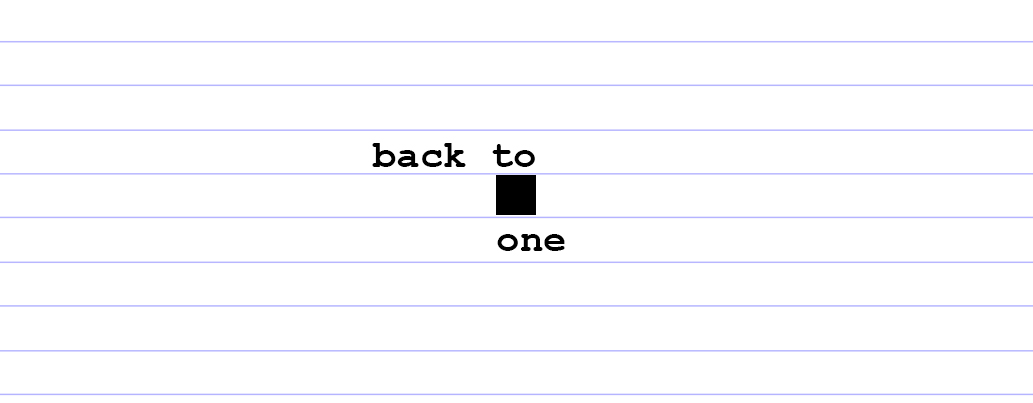INK157: The Origins Of Language – Double interview
[original article by Demetrio Marra]
Double interview with Silvana Borutti and Andrea Moro
Silvana Borutti: professor of theoretics at University of Pavia. Her reasearch concerns the analysis of contemporary theoretical languages: mostly epistemology, philosophy of human sciences and phylosophy of language. “Nodi per la verità, concetti e strumenti per le scienze umane” is her latest book, published for Mimesis in 2017.
In which way do your studies relate to the origins of language?
The interest of phylosophy for language has gone through two great ages. The most recent one is the so called 20th century’s linguistic turning point, with the neopositivistic analysis of the meaning of clauses, Wittgenstein’s silence (Tractatus) and linguistic games (Philosophical investigations), analytic philosophy. The topic that lays in the roots of language is, on the contrary, an 18th century debate to which Rousseau, Condillac, Herder, Hamann and Humbolt contributed, and about which the Académie Royale of Berlin declared a competition. From a philosophical point of view -philosophers do not give answers, that’s a task for positive sciences, they try to formulate the correct questions- we need to assert that the question about the origins of language is an antropomorphic one, meaning that it is a way of questioning that is typical of human beings, as secular and finite as they are, dominated by the arrow of time. The fact that the issue at the roots of language has turned into a story, a narration or mythos (in an aristotelic sense) is meaningful. Rousseau’s and Condillac’s answers are mythos: they attribute the roots of language to passions, or needs. The mythos of Babel of a unique originary language, spoken by every person, that undergoes the castigation of manifold languages because of guilt, is a comforting one. Nowadays we should recognize the plurality of languages as the overcoming of the identical and as an opening to other idioms, and not as the redemption for guilt. Philosophically, questioning about the origins of language should be turned into questioning about the conditions that make possible for a language to appear. Answers are the linguist’s tasks (for instance, Andrea Moro’s research about the impossible languages is actually about these conditions), or the paleoanthropologist’s (for example, Leroi-Gourhan, in Gesture and Speech studuies the relationship among hominization, tools and language).
According to your opinion, does a bond exist between a transition point in the evolution of language and the origination of conscience?
If we assume that conscience is self-awareness, istinctively I’d say yes, but I don’t have the competency to argue about this. So, I’ll answer exponing Hegel’s concept of self-consciousness, commented by Kojève. In Hegel’s Phenomenology of the Spirit, self-consciousness rises from a desire that enlivens consciences: every single one craves to be recognized by the others, in its own desire for validation. This is strictly human, since it goes beyond the simple desire for life, that is an animal craving. Animals, willing for food, surely have a feeling inside themselves; but, as they consume their food, the animal desire fades, constantly repeating a cycle of “desire-consumed object”. Human desire does not fade after consuming, because conscience looks for itself (self-consciousness), constantly craving the other not as an object, but as a gaze that aknowledges it. In this state of motion in which self-awareness arises, explains Kojève, language too arises: speech, intended as logos, is “the happening of presence”, meaning “the process that turns the empiric being (the present datum) in its ideal form”, the meaning. The logos is the ideal being that a thing has become through the loss of reality. In an analogous manner, Gehlen talks about language as an “exoneration”, because it allows to do without the physical presence of things (reality).
Are humans regarding or disregarding reality through language?
Both things. Reality is real to us: we know it as a thing that’s meant for us, and we disregard it as a thing itself. Knowledge is regarding and disregarding, at the same time, and that means impossibility and limits in acquiring the thing’s clarity.
Andrea Moro: professor of Linguistics. His research mainly consist in studies about theoretical syntax, and biological roots of language on a neurobiological basis. “Le lingue impossibili” is his latest book, published for Raffaello Cortina Editore in 2017. Recently he debuted as novelist, with “Il Segreto di Pietramala”, for La Nave Di Teseo (2018).
In which way do your studies relate to the origin of language?
There are two origins, so to speak, of language: one in the individual, and one in the species. The way used by contemporary linguistics manages to convey new perspectives for both senses, even with a definitely higher relevance in favour of the origin of language in the individual. With respect to this, we need to be aware of three facts: first, the mathematical structure that is expressed in world’s idioms is too complicated to be introspectively available: it is appropriate to proceed with an experimental method, exactly as for the other empirical domains. Second: this structure is, apart from negligible aspects, common to every language in the world, both from a formal and neurobiological point of view, as research that uses a neurological imaging technique shows. Third: children converge with the idiom to which they’re more or less exposed in a certain period of time, even if some languages seem to be more complex than others, to adults. If you consider these factors, the only reasonable hypothesis to explain the origin of language in the individual is to admit the extistence of a biologically determined guide that is common to every individual of our species, that preceeds experience and limits its influence. Obviously, languages vary in sounds and rules, but every living being varies and no one, by now, disputes about them deriving from a common scheme: the same revolution characterized linguistic studies, firstly in intuition made on a formal basis, essentially due to Noam Chomsky’s studies, then also on an experimental basis. The origin of language in the species, intstead, is a far more difficult problem to handle, because we don’t have exact systems with which we can know if a population did have a language with a structure that is comparable to ours, except in the case of written documents. Nevertheless, writing was born around 5000 years ago, and human beings that “were made like us” has been living on the planet for not less than 100 000 years. So, the problem is understanding what to do in order to comprehend how to date the appearance of language without written documents. The extistence of complex social structures, or of elaborate architectures, cannot be diriment, considering the existence of organisms such as ants or bees, that manifest this characteristics even if they’re not actually equipped with a similar language. A possibility that I did sometimes suggest is that a symptom of the existence of a language that is comparable to ours is progress. A spider, when it builds its canva, even if it’s admirable, does so according to how other spiders built it before; human beings, for better or worse, do not remake the history of humanity, discovering fire and wheel as children, but start from where their predecessors arrived. Since we are the only living beings that display constant progress, maybe -I’m pointing out MAYBE- language has been existing since progress has: by any means this would be an indirect and weak deduction. Another deduction is also possible. The core of human language is the ability to rearrange signs: from a finite group of words we’re able to generate a potentially infinite number of utterances. This ability, that we technically call syntax, is similar to numeracy: the biggest number or the longest sentence do not extist, apart from mnemonic limits. But, if syntax, fingerprint of human language, can produce infinite structures, it must have come, so to speak, in blocks all together: you cannot produce half an infinite, as you cannot produce a kind of mathematics that only arrives to a certain number (not considering closed groups). This is also useful to question about the origin of language in the species, because it excludes the existence of a proto-syntax, if you don’t want to force the term as long as it loses its meaning.
According to your opinion, does a bond exist between a transition in the evolution of language and the origination of conscience?
I’m not able to give an answer, because I don’t know a definition of conscience that is explicit enough to be able to be studied in an experimental way and, as I stated before, it is difficult to imagine an evolution of the core part of language, that is syntax.
Are humans regarding or disregarding reality through language?
I believe that it is possible to state that language provides the tools for interacting with reality, but that its and the world’s structures do not have remarkable common features and, it they have them, they did not manifest in language. If this position is defendable, studying the structure of language does not help us to comprehend how reality works, but, on the other hand, how our brain perceives and interacts with reality.




